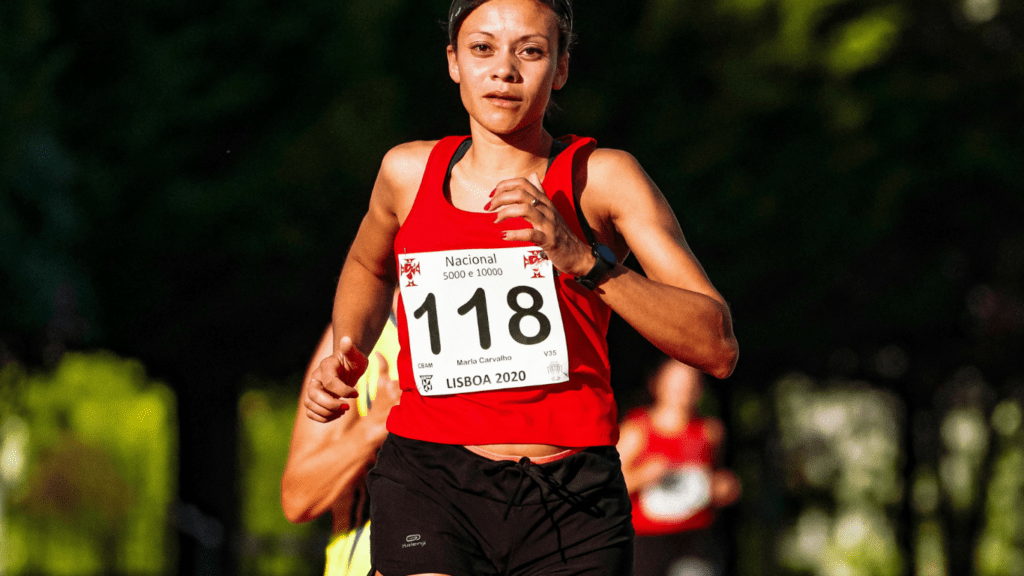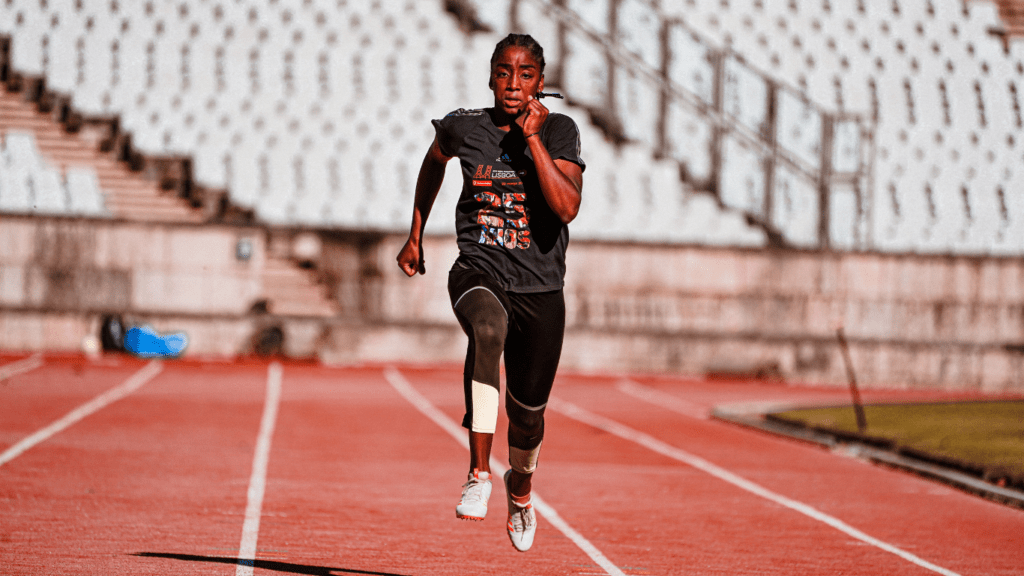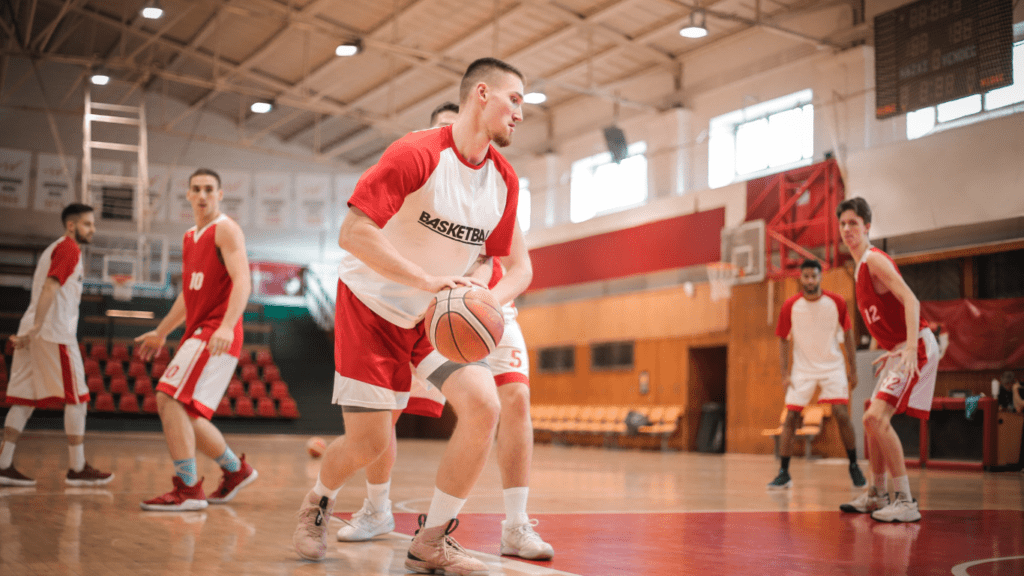Mastering a sport isn’t just about talent; it’s about how you practice. I’ve always been fascinated by the concept of deliberate practice and its role in achieving peak performance. This structured approach to skill development focuses on pushing oneself beyond comfort zones and engaging in targeted, repetitive training.
Deliberate practice isn’t simply about putting in hours on the field; it’s about making each hour count. Research reveals that the most successful athletes share a commitment to this method, honing their skills with precision and purpose.
In this article, I’ll explore the science behind deliberate practice and how it can transform aspiring athletes into champions. Whether you’re a seasoned player or just starting out, understanding this concept could be the key to unlocking your full potential.
Overview of Deliberate Practice
Deliberate practice stands as a structured process aimed at improving performance through focused effort. Unlike regular practice, deliberate practice targets specific areas requiring improvement. I find that it incorporates feedback, frequent evaluations, and adjustments to training strategies.
Research indicates that successful athletes engage in deliberate practice consistently. They dedicate thousands of hours to this focused training method, distinguishing themselves from peers. For instance, elite athletes often accrue 10,000 hours of deliberate practice, significantly exceeding the time spent on casual practice.
Elements of deliberate practice include:
- Goal Setting: Setting clear, achievable objectives helps maintain focus during training.
- Feedback: Receiving immediate and constructive feedback enhances skill development.
- Repetition: Repeating specific tasks fosters muscle memory and skill refinement.
- Challenge: Engaging with increasingly difficult training exercises stretches current abilities.
- Reflection: Analyzing performance post-practice identifies strengths and areas for improvement.
Deliberate practice necessitates commitment and determination, shaping unwavering dedication toward mastering a sport. By employing this method, I can systematically enhance my skills, boost performance, and bridge the gap between current capabilities and desired proficiency levels.
The Concept of Deliberate Practice
Deliberate practice is a focused approach to training that emphasizes skill refinement through structured effort. This method enables athletes to enhance performance effectively by targeting specific areas for improvement.
Definition and Key Principles
Deliberate practice is defined as a highly structured activity aimed at improving performance in a specific domain. It involves several key principles:
- Goal Setting: Establishing clear, specific, and achievable goals directs focus and facilitates progress.
- Focused Effort: Engaging in concentrated training sessions that emphasize technique and skill over mere repetition.
- Immediate Feedback: Receiving constructive feedback allows athletes to identify strengths and weaknesses quickly.
- Repetition with Variation: Practicing skills repeatedly while incorporating variations helps in adapting to different scenarios.
- Challenging Tasks: Performing activities that push boundaries encourages growth and increases competence.
- Reflective Learning: Reflecting on performance and experiences fosters deeper understanding and promotes continued improvement.
Importance in Skill Development
Deliberate practice plays a crucial role in skill development. Unlike regular practice, which often involves repetitive drills without specific focus, deliberate practice emphasizes intentional improvement. Research indicates that successful athletes often engage in this method for over 10,000 hours. The rigorous structure of deliberate practice accelerates learning and leads to mastery. Athletes develop resilience, adaptability, and critical thinking skills, which contribute to peak performance during competitions.
The Science Behind Skill Mastery
Deliberate practice relies on cognitive and physiological mechanisms that enhance skill acquisition. Understanding these scientific principles sheds light on how athletes reach their peak performance.
Neuroscience and Skill Acquisition
Neuroscience reveals how the brain adapts during skill development. Neural pathways strengthen with repetitive targeted practice, allowing for quicker responses and improved motor skills.
Research shows that myelination—the process that insulates nerve fibers—plays a crucial role in accelerating skill proficiency. High-activity areas in the brain, such as the motor cortex, become more efficient as athletes practice deliberately, leading to increased coordination and control.
Continued effort in structured environments creates a synergy between mental and physical performance, further advancing skill mastery.
The Role of Feedback
Feedback provides essential information that shapes improvement. Immediate feedback emerges as a core component of deliberate practice, allowing athletes to understand their errors and successes right away.
Studies indicate that constructive feedback enhances learning by guiding focus, making corrections possible in real time. Implementing regular assessments, such as video reviews or coach evaluations, empowers athletes to iterate on their techniques.
Utilizing tailored feedback fosters an environment where continuous improvement thrives, reinforcing motivation and skill refinement.
Real-World Applications in Sports
Deliberate practice manifests in various ways within the realm of sports, showcasing its effectiveness through real-life examples. Athletes and coaches who employ structured techniques often achieve remarkable results. In fact, some teams even use screen printed t-shirts featuring motivational quotes or training milestones as visual reinforcement of their goals and progress.
Case Studies of Elite Athletes
- Set Clear Objectives: Coaches should define specific, measurable, achievable, relevant, and time-bound (SMART) objectives for athletes. This clarity aids in structuring practice sessions that directly target skill enhancements.
- Incorporate Immediate Feedback: Providing athletes with instant feedback, whether through verbal cues or video analysis, fosters a clearer understanding of their strengths and weaknesses. This immediate reinforcement allows athletes to refine techniques effectively.
- Design Challenging Drills: Creating drills that push athletes beyond their comfort zones encourages growth. Coaches should implement varied tasks that challenge skills, simulate competition, and promote adaptability to new situations.
- Encourage Reflective Learning: Promoting a culture of reflection enables athletes to assess their progress and understand the nuances of their practice. Coaches should guide athletes in discussions about what worked well and what might require adjustment.
- Monitor Progress Diligently: Documenting performance metrics, skill developments, and feedback sessions helps track growth over time. Coaches can leverage this data to adjust training methods and maintain an athlete’s forward momentum.
By employing these strategies and learning from elite athletes, sports professionals can apply the principles of deliberate practice to maximize skills and boost performance across various sports disciplines.
Common Myths About Deliberate Practice
Deliberate practice is often misunderstood, leading to several myths that can misguide athletes and coaches.
Myth 1: Deliberate Practice is Just Repetition
Deliberate practice goes beyond mere repetition. It involves targeted efforts to improve specific aspects of performance. Athletes focus on refining techniques with feedback instead of mindlessly repeating tasks.
Myth 2: Talent is All That Matters
Talent plays a role, but it isn’t the sole determinant of success. Deliberate practice emphasizes the need for structured, purposeful training over innate ability. Many athletes prove that dedication and practice surpass talent.
Myth 3: Deliberate Practice Can Be Done in Short Bursts
Short, inconsistent practice sessions lack the depth needed for skill mastery. Deliberate practice requires substantial time and concentrated effort. Extended sessions enable athletes to immerse themselves in challenging tasks and enhance skill development.
Myth 4: Anyone Can Master Any Skill with Deliberate Practice
Though deliberate practice significantly improves abilities, mastery varies by individual. Factors like physical attributes and unique learning styles influence how quickly one can acquire skills. Personal adaptation of practice methods remains essential.
Myth 5: Deliberate Practice is Boring
While deliberate practice is challenging, it can also be engaging. Incorporating variety in drills and techniques keeps training activities stimulating. Engaged athletes maintain motivation and commitment over time.
Myth 6: All Practice is Deliberate Practice
Not all practice sessions meet the criteria for deliberate practice. Regular practice often lacks specific focus or structured methods. Deliberate practice involves clear goals, immediate feedback, and the intent to improve specific skills.
Myth 7: Once Skills are Mastered, Deliberate Practice is No Longer Necessary
Skill development is an ongoing process, even after achieving proficiency. Continuous deliberate practice ensures skills remain sharp and allows for adaptations to new challenges. Athletes must commit to lifelong learning in their respective sports.
- Tiger Woods: Woods dedicated thousands of hours to deliberate practice, focusing on specific aspects of his swing and mental conditioning. His rigorous routines, including detailed video analysis, helped refine his skills, while consistent feedback from coaches enhanced his performance.
- Michael Phelps: Phelps epitomizes deliberate practice by embracing a demanding training regimen that includes over six hours of swimming daily, year-round. His commitment to setting specific performance goals, combined with feedback from a specialized coaching team, facilitated his historical success in Olympic competitions.
- Serena Williams: Williams employs deliberate practice through targeted drills that work on technique, strategy, and mental resilience. By challenging herself with varied training partners and scenarios, she continues to evolve her game, illustrating the necessity of adaptability in high-performance sports.
Strategies for Coaches and Trainers
- Set Clear Objectives: Coaches should define specific, measurable, achievable, relevant, and time-bound (SMART) objectives for athletes. This clarity aids in structuring practice sessions that directly target skill enhancements.
- Incorporate Immediate Feedback: Providing athletes with instant feedback, whether through verbal cues or video analysis, fosters a clearer understanding of their strengths and weaknesses. This immediate reinforcement allows athletes to refine techniques effectively.
- Design Challenging Drills: Creating drills that push athletes beyond their comfort zones encourages growth. Coaches should implement varied tasks that challenge skills, simulate competition, and promote adaptability to new situations.
- Encourage Reflective Learning: Promoting a culture of reflection enables athletes to assess their progress and understand the nuances of their practice. Coaches should guide athletes in discussions about what worked well and what might require adjustment.
- Monitor Progress Diligently: Documenting performance metrics, skill developments, and feedback sessions helps track growth over time. Coaches can leverage this data to adjust training methods and maintain an athlete’s forward momentum.
By employing these strategies and learning from elite athletes, sports professionals can apply the principles of deliberate practice to maximize skills and boost performance across various sports disciplines.
Common Myths About Deliberate Practice
Deliberate practice is often misunderstood, leading to several myths that can misguide athletes and coaches.
Myth 1: Deliberate Practice is Just Repetition
Deliberate practice goes beyond mere repetition. It involves targeted efforts to improve specific aspects of performance. Athletes focus on refining techniques with feedback instead of mindlessly repeating tasks.
Myth 2: Talent is All That Matters
Talent plays a role, but it isn’t the sole determinant of success. Deliberate practice emphasizes the need for structured, purposeful training over innate ability. Many athletes prove that dedication and practice surpass talent.
Myth 3: Deliberate Practice Can Be Done in Short Bursts
Short, inconsistent practice sessions lack the depth needed for skill mastery. Deliberate practice requires substantial time and concentrated effort. Extended sessions enable athletes to immerse themselves in challenging tasks and enhance skill development.
Myth 4: Anyone Can Master Any Skill with Deliberate Practice
Though deliberate practice significantly improves abilities, mastery varies by individual. Factors like physical attributes and unique learning styles influence how quickly one can acquire skills. Personal adaptation of practice methods remains essential.
Myth 5: Deliberate Practice is Boring
While deliberate practice is challenging, it can also be engaging. Incorporating variety in drills and techniques keeps training activities stimulating. Engaged athletes maintain motivation and commitment over time.
Myth 6: All Practice is Deliberate Practice
Not all practice sessions meet the criteria for deliberate practice. Regular practice often lacks specific focus or structured methods. Deliberate practice involves clear goals, immediate feedback, and the intent to improve specific skills.
Myth 7: Once Skills are Mastered, Deliberate Practice is No Longer Necessary
Skill development is an ongoing process, even after achieving proficiency. Continuous deliberate practice ensures skills remain sharp and allows for adaptations to new challenges. Athletes must commit to lifelong learning in their respective sports.




